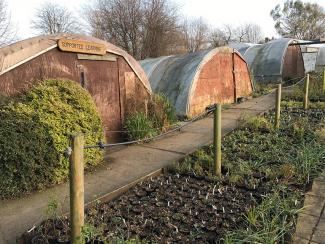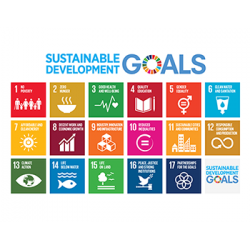
Food Value Chain
The Food Value Chain project consists of two clusters of activities, one focused on Kisumu with involvement from the platforms in Kisumu, Cape Town and Gothenburg and one involving Sheffield, Manchester and Gothenburg. The latter is a collaboration between the platforms in Sheffield-Manchester and Gothenburg. This is a cross-cutting thematic project covering different aspects on the food value chain namely: production, distribution/marketplace systems, processing, packaging, product design and development, and consumption, as well as food waste.
Given the different clusters, the project also seeks to tease out differences in how the food value chain, its functioning (or lack thereof) and food value chain outcomes, such of food insecurity, obesity, external impacts, such as ecological impact, may manifest in the different clusters.
The project involves understanding the existing patterns of various food system related aspects for comparison and identifying practical opportunities for actions to ensure urban food security and sustainability, with due appreciation for regional and developmental needs, priorities and trade-offs. The project is relevant to the achievement of the Sustainable Development Goals (SDGs) on hunger (SDG2), poverty (SDG1), good health and wellbeing (SDG3), responsible consumption and production (SDG12), reduced inequalities (SDG10) and importantly, sustainable cities and communities (SDG11). The project indirectly impacts other SDGs such as SDG 14 and 15 (life below water and on land) as well as questions of gender equity (SDG5).
The first cluster of activities has its focal point in Kisumu, with the collaboration of the platforms in Kisumu, Cape Town and Gothenburg. The objective, with a focus on urban food security, value chain, nutrition and systems, is addressed through five different work packages:
1. Urban food security, value chain and nutrition
2. Consuming Urban Poverty (funded by ESRC)
3. Nourishing Spaces (funded by IDRC)
4. Urban rural Gothenburg (Stadslandet)
5. Craft - Kisumu frugal innovation hub.
The common denominator in all these work packages is food availability, accessibility, distributive channels, packaging, marketing, affordability, utilization, quality, urban food dimension, production system, sustainability and governance related issues.
The Consuming Urban Poverty project work package is complete, while the Nourishing Spaces project has started in 2017. A joint session with all collaborators took place at Mistra Urban Futures International Conference on Realising Just Cities in Kisumu in November 2017 and again in Cape Town in 2018. Platforms for further discussion and sharing across the Platforms were refined with new comparative projects currently being discussed – these include food waste (across all platforms), mobility and value chains (Kisumu and Cape Town), and collaborative writing projects.
Policy Briefs from the Consuming Urban Poverty project can be downloaded below.
In the second cluster of activities, the platforms in Sheffield-Manchester and Gothenburg have developed a process of mutual exchange to support food projects on the ground in their cities. Members of the Action Research Teams (ARTs) in each of the three participating cities (Sheffield, Manchester and Gothenburg) will engage in learning exchange visits to Gothenburg, will participate in joint peer to peer learning events involving the ARTs from other partner cities, and will peer review project reports from the other partner cities. They will also contribute to an evaluation exercise that will support the development of social infrastructure by producing insights and a series of shared actions to mutually support food networks within and between the partner cities.
Usefulness
This project and its activities will provide policy makers on local and regional scales with ideas, experiences and evidence regarding local food production, security and distribution.
Project members







